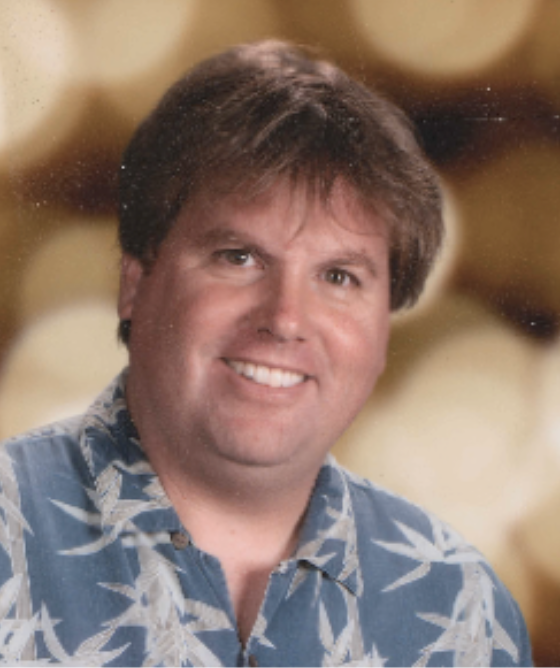Damian Baraty
(He/him)
Computer Science Teacher
Severn School
How did you first get into Computer Science?
I came to CS via a very circuitous route, from adventure and experiential education. The constant thread was that wherever I found myself towards the end of college and beyond, I gravitated towards helping people solve problems on computers. I began helping volunteer efforts in the education department of the Seattle Aquarium's education department in the early 1990s, crafting newsletters and training volunteers to act as guides or docents. At The Ashokan Field Campus in the Catskills of Upstate New York, to a marine science camp off the coast of California on Catalina Island, to an astronomy experiential education center in the San Jacinto Mountains above Palm Springs, I taught various experiential classes but would always find a way to get close to the computers, helping solve organizational problems in Word Perfect 5.1, Lotus 1-2-3, then Microsoft Excel, or simply by helping maintain and troubleshoot computers and networks. My breakthrough to private schools came in Las Vegas, where I subbed in for the librarian and helped the school with server and network management. This experience segued into teaching middle school computer science, a field I’ve grown in across various states— Nevada, Florida, Colorado, Pennsylvania, and now Maryland. Through this journey, I’ve evolved from teaching foundational courses in middle school to more advanced courses in Cybersecurity, AP Computer Science A and Principles, and robotics, continuing to learn as I go.
What are some successes and challenges you’ve experienced along the way?
On Catalina Island, I worked with a visionary who would go on to establish the Marine Advanced Technology Education Center at Monterey Peninsula College. MATE started a Remotely Operated Vehicle competition that was highlighted in the film Spare Parts, showcasing an underdog high school team's victory over highly selective engineering colleges. Years later, in Pennsylvania, I led two teams to the world championships of this competition. One journeyed to St. John's, Newfoundland, for an Arctic simulation at a research facility, and the following year, we participated at NASA's Neutral Buoyancy Lab in Houston.
I take pride in those competitive teams, and continue to work with MATE as a competition judge at the regional and national level whenever I can.
What do you find compelling about Computer Science?
One aspect I appreciate about computer science is its constant evolution. The foundational skills and techniques have transformed dramatically over the past two decades. Teaching in this field means you cannot rely on old lesson plans and curricula; staying updated is crucial. This dynamism also leads to specialization; unlike the 1970s when one could master almost all areas of CS and the Internet, it's now impossible to be an expert in everything. This situation could seem overwhelming, but it's exactly what makes the field thrilling. Collaboration and trust within the community become essential. Moreover, with technology's role in their futures, many students easily grasp the importance of learning these skills. The promise of numerous viable career paths for those students willing to engage with technology adds to the excitement, allowing students to open doors to their possible futures.
What’s going well for you now? Any recent or ongoing work or accomplishments that you’re proud of?
I've discovered programs that not only challenge my students but also show them how hard work and application of knowledge can push the boundaries of human understanding. Currently, my programming enthusiasts are engaged in the TI Codes Competition hosted by Texas Instruments. They aim to develop a calculator-based emergency communicator, leveraging Python and block-level coding with Bluetooth and radio technology on the BBC micro bit. This device is designed to transmit messages over 5 miles in disaster scenarios when traditional communication networks are down. Our team is honored to be among the 12 selected globally for this competition.
Additionally, we've recently participated in the NITARP program, a NASA initiative for teacher and student research. Three exceptionally talented astronomy students of mine attended training at Caltech, focusing on identifying young stellar objects. Through astrometric analyses and various calculations, they succeeded in producing a research poster presented at a professional astronomy conference in New Orleans. Their work embodies the spirit of inquiry and discovery we strive to cultivate.
Do you have any advice or resources for people getting into CS?
My advice is to recognize the vast opportunities within computer science, cybersecurity, and data management. These fields are integral to every profession, from medicine and business to engineering, all demanding expertise in data analysis and AI. For instance, while a doctor can excel through experience with thousands of medical images, machines trained on millions can pre-screen and enhance diagnostic accuracy. Technology's impact on every field is undeniable, making digital literacy as essential today as stenography was in the 1950s. Early education in these areas prepares students to tackle societal challenges with innovative solutions.
As for resources, my connections with organizations like MCCE and CSTA are invaluable. They provide a space to interact with peers who understand and share innovative ideas. In a private school setting, where CS teachers are often lone lances, finding an outside community is crucial. This network is a treasure trove of knowledge, resources, and inspiration, helping to navigate the isolation often felt in specialized teaching areas. Networking is our lifeline, enabling us to thrive and innovate.
What are you working on now/looking forward to?
I'm pursuing a masters degree through the National Cyber Security Teaching Academy, aiming to bring current cybersecurity education to my classroom. I'm hoping to advocate for a technology requirement at my current school and help define the skills, knowledge, and courses that all students in private schools like mine should have before moving on to college or careers. I am planning to serve as a judge again this year in the MATE ROV competition and will be in Kansas City, MO grading the AP Computer Science A exam in June. Then, I'm looking forward to playing some disc golf and going kayaking.

